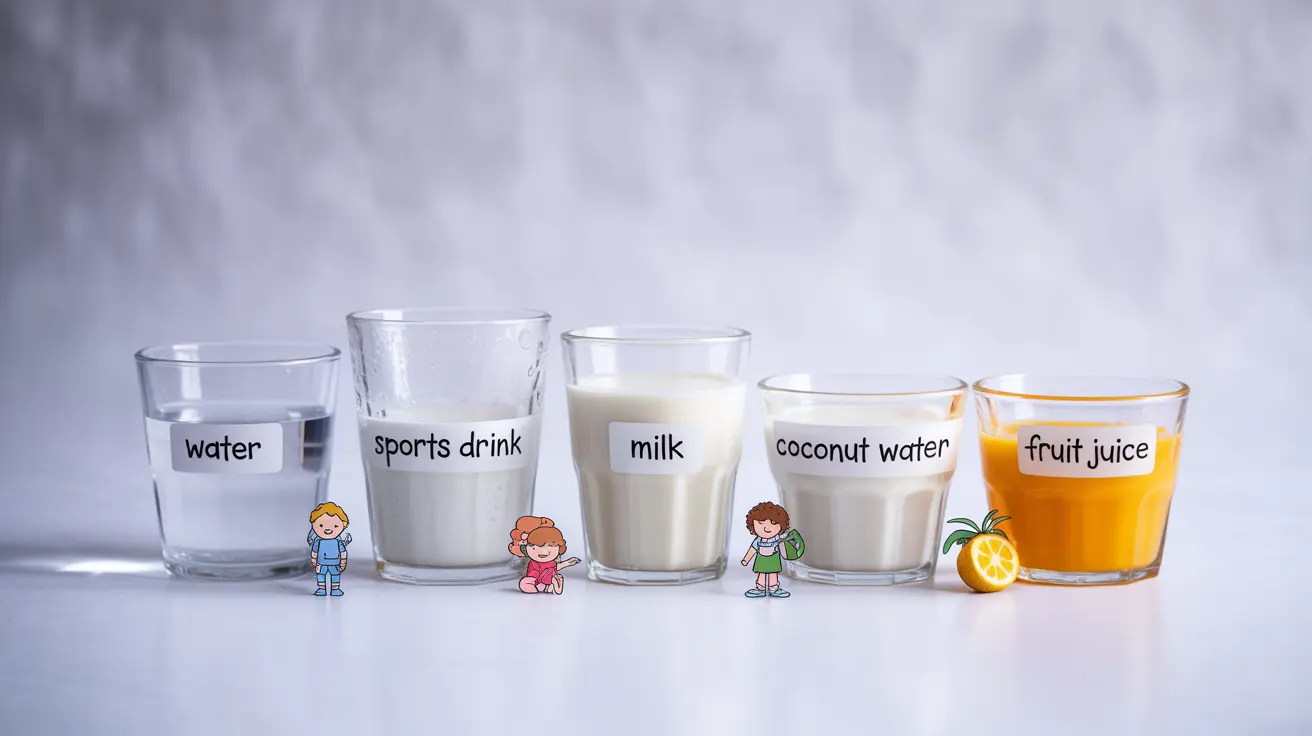As children become more active in sports and outdoor activities, many parents wonder about the safety and necessity of sports drinks like Gatorade for their kids. While these beverages are marketed as essential for athletic performance, understanding when they're appropriate – and when they're not – is crucial for making informed decisions about your child's hydration needs.
This comprehensive guide will explore the benefits, risks, and appropriate uses of Gatorade for children, helping parents make educated choices about their kids' hydration options.
Understanding Sports Drinks and Their Components
Gatorade and similar sports drinks typically contain three main components: water, electrolytes (primarily sodium and potassium), and carbohydrates in the form of sugar. While these ingredients can be beneficial in specific situations, they're not always necessary for routine hydration.
The Role of Electrolytes
Electrolytes help maintain proper fluid balance in the body and support muscle function. While children do lose electrolytes through sweat during exercise, most kids get adequate amounts through a balanced diet and don't require supplementation through sports drinks.
When Sports Drinks May Be Appropriate
There are specific circumstances when Gatorade might be beneficial for children:
- Intense physical activity lasting more than 60 minutes
- Sports events in very hot weather conditions
- Multiple same-day sporting events
- Endurance activities or competitions
The Health Concerns of Regular Sports Drink Consumption
Regular consumption of sports drinks can pose several health risks for children:
Sugar Content and Dental Health
A typical 20-ounce bottle of Gatorade contains about 34 grams of sugar. Regular consumption can contribute to:
- Tooth decay and enamel erosion
- Excess calorie intake
- Increased risk of obesity
- Poor eating habits
Sodium Considerations
While electrolytes are important, excessive sodium intake through regular sports drink consumption can be problematic, especially for children who don't need the extra sodium in their diet.
Better Hydration Alternatives for Kids
For most children's daily hydration needs, several better options exist:
- Water: The best choice for routine hydration
- Milk: Provides natural electrolytes and nutrients
- Natural coconut water: Contains electrolytes without added sugars
- Diluted 100% fruit juice: For occasional variety
Frequently Asked Questions
Is Gatorade safe and healthy for kids to drink regularly?
No, Gatorade is not recommended for regular consumption by children. Its high sugar and sodium content make it unsuitable for daily use. It should be reserved for specific situations involving intense physical activity.
When should children drink sports drinks like Gatorade instead of water?
Children should only consume sports drinks during or after prolonged intense physical activity (over 60 minutes), particularly in hot weather conditions or during multiple same-day sporting events. For routine hydration and shorter activities, water is the best choice.
What are the health risks of giving kids sports drinks too often?
Regular consumption of sports drinks can lead to dental problems, excessive calorie intake, weight gain, and poor dietary habits. It may also create an unnecessary dependency on sweetened beverages for hydration.
How does Gatorade's sugar and sodium content affect children's health?
The high sugar content can contribute to dental cavities, weight gain, and increased risk of type 2 diabetes. The elevated sodium levels are typically unnecessary for children's daily needs and can promote unhealthy eating patterns.
What are better hydration options for children who do sports or play outside?
Water should be the primary hydration choice for most activities. For longer, intense activities, consider natural alternatives like coconut water, or properly timed water breaks with healthy snacks that provide natural electrolytes. If sports drinks are necessary, they should be reserved for specific high-intensity situations.




